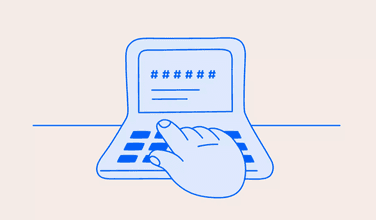- Osome Blog UK
- Keeping Invoices Organised for Your Small Business
Keeping Invoices Organised for Your Small Business
- Modified: 28 October 2025
- 5 min read
- Accounting & Bookkeeping


Francesca Del Giudice
Author
Francesca is a content creator with more than 10 years of experience across academic research, consulting, venture, and tech startups. She excels at transforming complex ideas into clear, practical content for UK entrepreneurs and business readers. Francesca’s work helps readers understand emerging trends, evaluate opportunities, and make informed decisions, bridging academic insights, strategic thinking, and innovation to support business growth.
Paperwork is the least popular business activity to do because frankly balancing receivables and payables takes up a lot of time and can cause a severe headache. So how can we organise invoices and receipts more efficiently?
You may not be a natural-born organiser but once you start running a company, you will be forced to have some sort of organisation in place if you don’t want to drown in paperwork. We get it. Paperwork is the least popular business activity to do because frankly balancing receivables and payables takes up a lot of time and can cause a severe headache.
If you need immediate help to relieve that headache, hand over your pain to our experienced accountants. If you want to get more tips, this article will help you with just that.
What Is an Invoice From an Accounting Perspective?
Let’s clarify what an invoice is. An invoice is essentially a request for payment. It is issued after a product/service was delivered to a customer and its purpose is to get them to pay for it. An invoice is a paper or a digital document that usually contains transaction-specific details: what goods/services were delivered, their quantity and price, names of vendor and client, their particulars (addresses, tax codes etc.), date of issue and a reference number.
Why Should You Keep All Your Invoices?
Keeping your invoices helps keep track of your money - this way, you know how much your company earns and for what, and how well your business is doing. The data sourced from invoices is entered in an accounting journal and then the general ledger. Having invoices in order simplifies the accounting and auditing process and also lets you double-check the records in your ledger. In addition, if you have a proof of every single transaction, you won’t panic when preparing annual reports and tax returns.
Furthermore, having source documents in place provides legal protection for you, your employees (if any) and your customers. In case of complaints, invoices prove that a product or service was (or wasn’t) actually delivered by you or paid for by your customer.
What is the Best Way to Organise Your Invoices?
Before you decide how you want to organise your invoices – electronically or physically – check out some general recommendations first.
- Set uniform invoicing standards for yourself and your staff. It will prevent errors and misunderstandings.
- Make your invoices as detailed as possible. Indicate date and time, customer, service, transaction amount, invoice number etc. – the more information, the better for your accountants later on.
- Choose one method of organisation and adhere to it. It’s best if you don’t alternate between them as documents might get lost mid-transfer.
- Organise invoices chronologically. It’ll help you keep an eye on your monthly and annual income.
- Process invoices on a rolling basis. It’s easier to do a little every day than to pull an all-nighter before your tax filing deadline.
- If someone else is keeping books for you, be polite and professional. Store everything neatly for them.
Make an Office Archive
If you work with clients who prefer to receive paper invoices, this method may be the one for you (but please do consider moving to digital copies). It can be used from the very start of your business - the only things you need are substantial storage space and supplies.
- You’ll likely need to print out two copies of each invoice - one for your customer and one for your own records.
- Match your copies of invoices with receipts to find out which products/services have already been paid for and which haven’t.
- Keep all payable invoices in sight. This way, you’ll remember to send your customers a reminder that they have a payment due.
- Now, you can deal with the processed invoices. Sort them by type depending on what you consider important for your business.
- Remember to transfer all necessary information from the invoices to your accounting journal.
The easiest way to organise invoices is by month, so you can make a box or folder for each. Alternatively, they can be sorted by client or product. For instance, if you work with three clients, it’s reasonable to designate a folder for each. If you deliver five products, it makes sense to sort invoices by product into five folders. Inside these folders, you can make sub-folders for each month, and so on. Use your imagination and take advantage of colour-coding - it really helps!
Digitise
If your business allows for electronic invoicing, use this advantage to the full. Keeping everything digital can save you money, space, and effort.
However, this method of organisation also needs a structured approach:
- Find invoicing or project tracking software you’ll be comfortable with. Google Docs, Google Sheets or Trello are great free options for companies with small budgets.
- You can type up invoices on your laptop and send them over right away. Remember that file names should reflect all essential details. You should be able to know what a file is about and where it’s supposed to go without opening it.
- Design a document processing path. Where do you create invoices? What folder should be their final destination?
- Create a special folder or board for invoices your customers haven’t paid yet. It’s important to keep them separately – this way, you’ll remember to send your customers a reminder.
- Categorise paid invoices depending on the needs of your business.
- Transfer all data from invoices to digital spreadsheets. Create a digital accounting journal.
- Apply labels, tags, and colour coding. They can be a great help if you need to navigate massive numbers of text and figures.
- Consider uploading your invoices to cloud storage like Xero. This way, it’ll be easy to share them with your team and accountants. Besides, having a copy can save your records from untimely destruction by a program error or spilled coffee or beer. By the way, we are also a Platinum Partner of Xero, helping entrepreneurs like you who dread traditional accounting. Entrepreneurs use our software to process paperwork automatically while you just snap and send documents into a secure chat. Next thing you know, your receipts and invoices get neatly organised, with accounts assigned and transactions linked.
Do you need to know your monthly income? Make a folder for each month and drop your invoices there. Are you monitoring how much each of your offline stores makes? Allocate a folder for each of them, and make a sub-folder for every month inside. Just think about what KPIs you’ve set and go ahead from there!
Middle Ground: Invoice Scanners
Sometimes, you may have to deal with both paper and electronic invoices -- for instance, if a customer asks for a scan of a signed invoice. To make your life easier, you can combine the two approaches and use your phone camera to scan documents.
There’s no need to invest in a specific scanner: you can find plenty of apps that will quickly digitise your printouts like CamScanner. The process is simple: download an app, scan your invoice, allocate the file to the appropriate folder, and transfer the data to an accounting journal.
Be Flexible As Your Business Grows
As your business changes and expands, chances are, you will need to adjust your accounting and bookkeeping services accordingly. When you first start out with your small business accounting, you are probably using a simple spreadsheet to organise your books. However, you may have to consider more advanced accounting methods as the company grows and this method may be ineffective.
Therefore, always take a look at how you are doing things and assess the time you put into your management of these accounts, and whether you should be considering outsourcing so you can focus on and put more energy into your core business.






